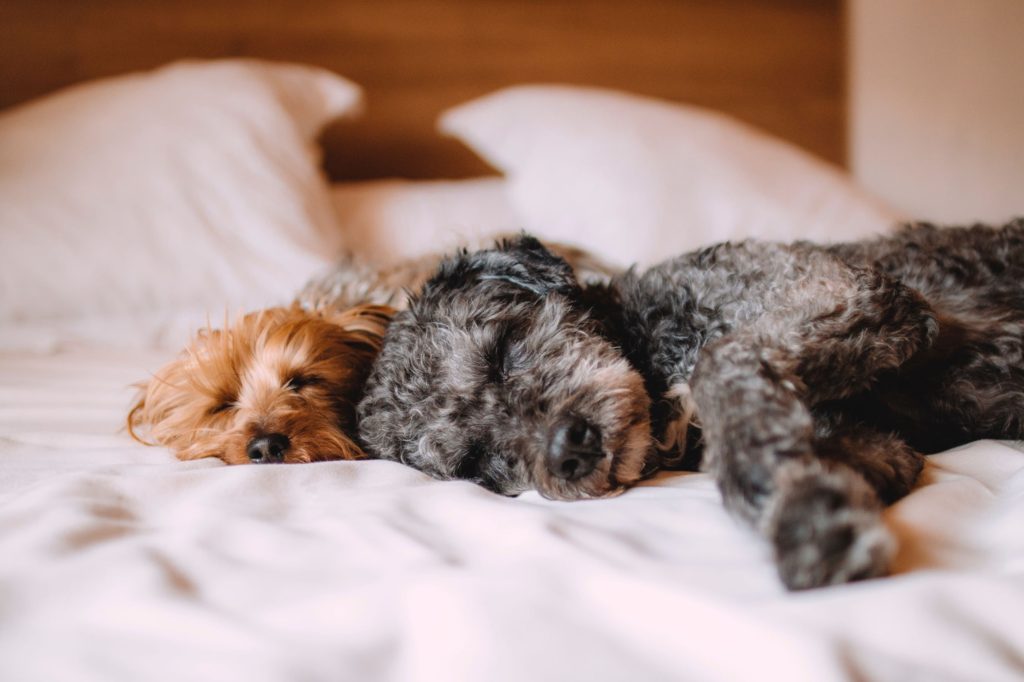
Foods Nutrients which help in good sleep
Good night Sleep is as important for our health as eating well and taking exercise. But today lifestyles have impacted our sleep, both the quantity of the sleep and quality of the sleep. This is leading to increased cases of insomnia, lifestyle diseases and loss on quality product output. Many of us have sedentary jobs, don’t exercise enough, have poor diets, and spend increasing time in front of computer and mobile phone screens all of which are affecting the amount and quality of our sleep and, consequently, our health.
The benefits of good sleep
The health benefits of sleep are diverse and numerous.
- Sleep strengthens our immune system, helping to protect us from viruses and infections
- Lowers the risk of high blood pressure, heart disease.
- Stroke and respiratory disorders.
- Reduces the risk of developing type 2 diabetes.
- Getting a good night’s sleep regularly is also important for enhancing and maintaining brain function, especially our memory, concentration, problem-solving, performance and productivity.
- The amount of sleep we get can also impact inflammation in the body, especially in the gut and digestive system. There is some evidence that a correlation exists between sleep deprivation and inflammatory bowel diseases.
Growing awareness about the importance of sleep is starting to encourage us to understand how much sleep we get, how much we need, and how we can make positive and practical changes to sleep better.

The good news is that it’s possible to sleep longer and more soundly by making a few simple lifestyle changes, especially to our diets. If you struggle to get a good night’s sleep, eating sleep-friendly foods and adjusting the timing of your meals could make a big difference.
Sleep-friendly foods can calm your mind and boost the hormones that promote good sleep, helping to restore and repair your body while you rest. It’s possible to sleep longer and more soundly by making a few simple lifestyle changes, especially to our diets.
Key nutrients for good sleep are
The principal nutrients that help us experience quality sleep are:
- Tryptophan
- Vitamins B6 and D
- Magnesium
- Calcium
- Potassium
- Glycine
Ingredients which help in Sleep as listed below
| Name of Nutrients | Description | Food Rich in the Nutrients |
| Magnesium | Mg helps to activate the neurotransmitters that are responsible for calming your mind and body. It also helps muscles to relax, while steadying heart rhythm. | Nuts and seeds, especially almonds, Cashews, Pumpkin and sunflower seeds ,Peanut butter ,Bananas ,Wheat Barley Brown rice Oats and whole grains, Legumes and beans, Dark leafy green vegetables Avocados ,Yoghurt Salmon, Mackerel Dried fruit Plain chocolate |
| Calcium | It helps brain to use the amino acid tryptophan to make the sleep-inducing hormone melatonin and mood regulator serotonin. | Nuts and seeds, especially almonds, hazelnuts, pistachios and sesame seeds, Milk , Cheese Yoghurt Milk ,Sardines , Broccoli Dark leafy green vegetables, especially kale and spinach Figs ,Seaweed Beans, especially soya beans Quinoa. |
| Vitamin B6 | This vitamin plays an important role in the conversion of the sleep enhancing amino acid tryptophan into serotonin the neurotransmitter that stabilizes mood and aids healthy sleeping patterns. | Oily fish such as salmon and fresh tuna ,Beef Chicken ,Wheat bran ,Potatoes ,Squash Pistachios , Sunflower seeds. |
| Vitamin D | I activates receptors in the brain that are associated with sleep. Getting plenty of fresh air is probably the best remedy of all, as sunlight promotes vitamin D synthesis in our skin. | Eggs ,Oily fish such as sardines and salmon, Dairy products ,Mushrooms . |
| Potassium | This is a muscle and nerve relaxant and aids good digestion. | Sweet potatoes ,Squash ,Beas ,Mushrooms Dark leafy green vegetables ,Potatoes ,Watermelon Beetroot ,Papaya ,Bananas. |
| Tryptophan | This regulates our moods, calms us, fights anxiety, and has a natural sedative effect. It’s an essential amino acid (a building block of protein), which means that our bodies can’t make it and we have to obtain it from food. Its main function is to serve as a precursor to serotonin, melatonin and niacin (vitamin B3). Lean proteins are high in tryptophan and easy to digest. | Fish ,Chicken ,Turkey ,Nuts and seeds, especially almonds and walnuts ,Cheese ,Milk Yoghurt ,Soy products ,Whole grains ,Oats , Quinoa Brown rice ,Beans ,Lentils ,Bananas , Potatoes . |
| Glycine | This is a mild sedative and nerve and muscle relaxant that can help to induce sleepiness and promote restful sleep. Like tryptophan, glycine is an amino acid, but unlike tryptophan, it is non-essential (that means the body can produce it itself). | Dairy products ,Fish ,Meat ,Dark leafy green vegetables |
Sleep-inhibiting foods
| Foods | Effect on sleeping quality | Foods to avoid |
| Processed Carbohydrates | Simple carbohydrates are quickly broken down into sugar molecules and can have a major effect on blood glucose levels. | Try to avoid over-refined simple carbs and sugary foods such as white bread, pasta, pastry, cookies, cakes and sweets before going to bed, as these can lead to significant spikes in blood glucose levels. |
| Artificial sweeteners | Might be sugar free and lower in calories, but there is evidence to suggest that they may adversely affect sleep. | Diets Coke ,Other drinks sweetened with artificial sweeteners. |
| Monosodium glutamate (MSG) | It is a brain stimulant and has been linked to night-time wakefulness. | Check the labels when buying soy sauce and packaged foods. |
| Alcohol | is both a stimulant and a depressant; it can cause you to sleep fitfully, feel dehydrated, experience a headache and feel tired. | Avoid alcohols. |
| Coffee, tea and caffeinated soft drinks | They stimulate your nervous system and keep you awake by blocking the effects of adenosine, a neurotransmitter that signals to the brain that it is time to rest. The stimulatory effect of caffeine lasts for at least 8–12 hours after consumption, so it’s sensible to avoid it from early afternoon onward. In addition, caffeine is a natural diuretic, so it stimulates the need to get up and urinate during the night. | Avoid these drinks before sleep. |
| Chocolate | Milk chocolate, contains sugar and fat as well as caffeine from the cocoa beans. It also contains other stimulants, including theobromine, which raises the heart rate and causes insomnia. | Avoid chocolates in evening. |
| Spicy foods | Worsen acid reflux and cause gastrointestinal discomfort in some people. | Avoid them in night. |
| Processed meats, Fatty and Fried foods | They are best avoided in the evening. They can cause indigestion, which can lead to wakefulness in the night. | Avoid them. |
GUIDELINES TO HELP YOU SLEEP

- Don’t eat a big meal close to bedtime, especially if you tend to get indigestion.
- Eat early, preferably three hours or more before going to bed and don’t over-indulge.
- Over-eating will make it more difficult for your body to digest the food.
- Don’t drink caffeinated drinks late in the day. As caffeine is a stimulant, it will make it harder for you to get to sleep and may cause night wakefulness. It is also a diuretic, stimulating urination and reducing hydration.
- Don’t eat food stimulants such as chillies, spicy dishes and processed meats.
- Don’t drink too much alcohol, especially in the evening. It may be relaxing, but its effects soon wear off and lead to wakefulness in the small hours.
- Don’t consume too many fluids before going to bed. Although you need to be well hydrated, you don’t want to be waking up regularly to visit the bathroom and then experience problems going back to sleep.
- Eat foods that will help induce sleep.
- Do eat enough calories during the day so that you don’t feel hungry in the night.
- Have a soothing hot milky drink at bedtime.